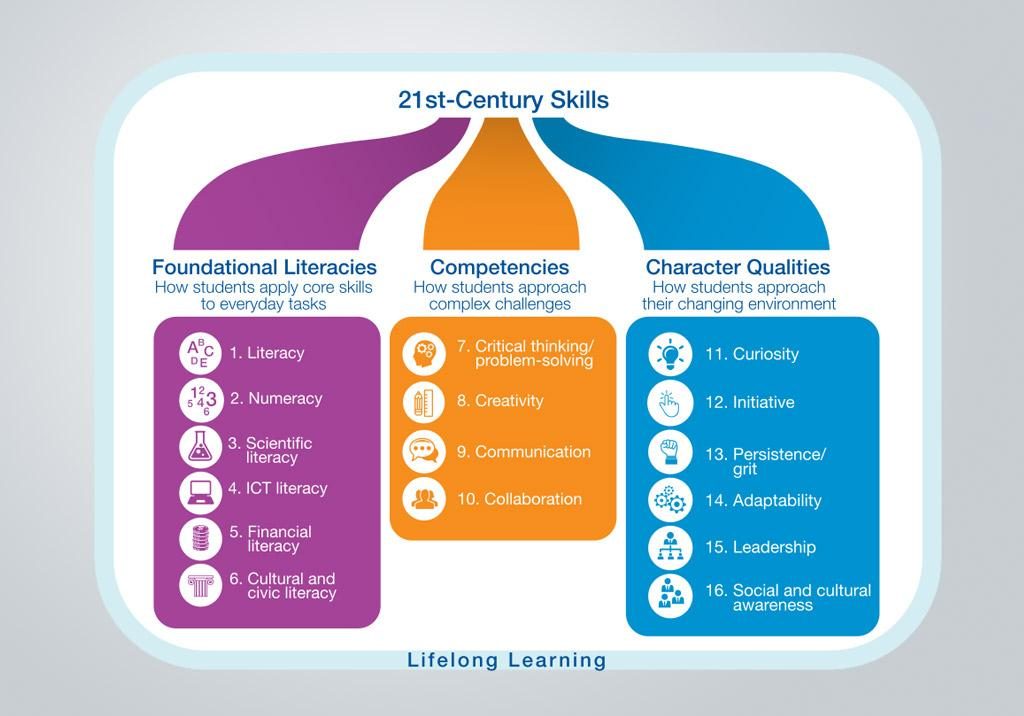This article is partially based on the book HR Innovations, Dunod
Employability is more important than GDP
In your opinion, what is the key indicator that will definitely determine a country’s place in the world economy in 2025?
Would you say it’s its GDP? Its industrial production? Its level of debt?
For my part, I would say that it is above all our ability to leave our comfort zone to fulfill our human potential.
This sentence might make you smile by its ingenuity, since it is well-know that the harsh realities of the economic world beats the idealistic aspirations of the philosophers every time.
Yet we are living at this peculiar moment when a certain form of humanism may become the primary factor of performance in organizations.
In the industrial era, the duration of a knowledge was measured in decades. Today, the acceleration of information technology means that the knowledge that students acquire at school is no longer valid at the time they graduate. This volatility completely redefines the role of learning in our lives. Learning throughout life — even daily — is becoming an prime imperative.
But this is not all: the very nature of the skills needed in the world of work is changing completely.
Throughout the industrial era, the key skills were to obey rules and hierarchy and conscientiously apply technical knowledge. In the age of the information society, these skills are still needed, but they no longer form the basis of excellence. It is now essential to be able to construct reasoning while questioning the reliability of the information. It is also essential to be creative, to work in a team, to communicate clearly.
Faced with the velocity and variability of information, we must be able to adapt, take initiatives and produce an unexpected result, both in terms of substance and form.
It is above all the so-called cognitive skills (communication, creativity, collaboration, critical thinking …) and digital skills that will make possible to navigate in a professional world where each one will be led to exercise more and more activities. Today, a classification has been agreed, to such an extent that it has been adopted by the OECD to create its new student evaluation framework:
The key indicator that translates this ability to learn is employability. According to the Ministry of Labor, employability is “the ability of oneself to evolve autonomously within the labor market, so as to achieve, in a sustainable way and through employment, his potential.”
This formulation, although clear, seems to me to obscure the scope of the current human revolution, which relies on a properly existential dimension. That is why I prefer to define employability by the ability to identify in ourselves the most fertile human germs and make them grow as much as possible in this fleeting passage that is our existence.
France, Sleeping Beauty of Europe
This shift from hard skills to soft skills modeled by scientific references like that of the OECD merely paraphrases Montaigne who already said that he prefers “a well-made head then a weel-filled head”.
Fostering weel-made heads is precisely the challenge that we are going to have to face now. Under Macron, France will invest another 15 billion francs in continuing education between 2017 and 2022. This effort is praiseworthy.
However, almost all of this money will be invested in a training system that:
- Has changed very little over decades
- Is one digital revolution late
- Is completely opaque
- Is almost exclusively centered on the learning of technical skills
- Is based on a top/down teaching model that is out of breath
For my part, I am convinced that the battle for employment will not be won by sending all the unemployed into massive and mostly purposeless training courses. It will only deal with the symptoms.
I bleieve the battle for employment can only be won through the battle of employability.
This imperative is not only an individual issue. Faced with changes in the world where careers are less and less linear, the choices that will be made today in training policies will determine each country place in the world economy in the decades to come.
From this point of view, the main danger that a country such as France faces in the next 5 years is to experience a massive obsolescence of skills that will structurally produce a large volume of people who are not very employable and are prone to become long-term unemployed.
Where to find the solution? Several countries are now showing the way to a successful transition of their training system. However, the French Paradox once again deploys its full flavor, because one of the countries in the world that produces today the most inspiring innovations in this sector is … France!
It is France that concentrates the most remarkable innovations in the world with an ecosystem of more than 400 startups of the innovation HR (Lab HR) of which nearly 100 in the field of learning. It is also France with the most innovative schools in the world (among them: Ecole 42, the Interdisciplinary Research Center, etc.) and more than 50 alternative schools that open each year.
It is as if the standardization and conservatism of the French system (The french Education Ministry is the 6th employer worldwide with over 1.300.000 employees) provoked a reaction in the form of a continuous bubbling of innovation in the education and training sector. The whole problem is that these innovations fail to switch to an industrial scale…
5 proposals to light a fire in the soul of individuals
Montaigne said that for him, education was not “a vessel that is filled, but a fire that is lit”. He added that he preferred to “forge his soul rather than furnish it.”
This is the real objective that training must now take. Here are five concrete proposals to move towards this direction:
- Inverted pedagogy: the current system relies on the transmission of a theoretical knowledge by teachers. It is inherently destructive of self-confidence because it makes constantly feel each one his deficiencies rather than his forces. Reverse pedagogy consists in building knowledge based on the interests and knowledge already existing in each student. It is based on the realization of concrete and inspiring projects, which awaken the desire to learn and the sense of autonomy.
- Identify the experiences that awaken inner fire: since the future belongs to soft skills, the matter becomes identifying all the experiences that develop them: co-development, immersions, challenges, entrepreneurship, initiatory paths, etc.
- Creating learning communities: these experiences should be pooled to help build learning communities where individuals can collectively live and develop their courage, their creativity, their collaborative spirit, and so on.
- Evaluate the impact of these new learning pathways on employability: these new modes of learning must be modeled in order to restructure the funding system of learning and give the money to employability-generating environments
- Bridging supply and demand on the basis of soft skills: since human qualities are the future of the professional world, it is necessary to propose tools for evaluating candidates that value this dimension.
So far, personal development was perceived as a topic outside the corporate world, except when it comes to team building or stress relief. Work is supposed to be a “serious environment” where everyone had to fulfill his specialized task. Tomorrow, the future will belong to companies who will understand that giving a significant time to ensure the human development of employees is the best guarantee of their performance. Whether you are a leader, a manager or a collaborator, working will ultimately mean: working on yourself.


